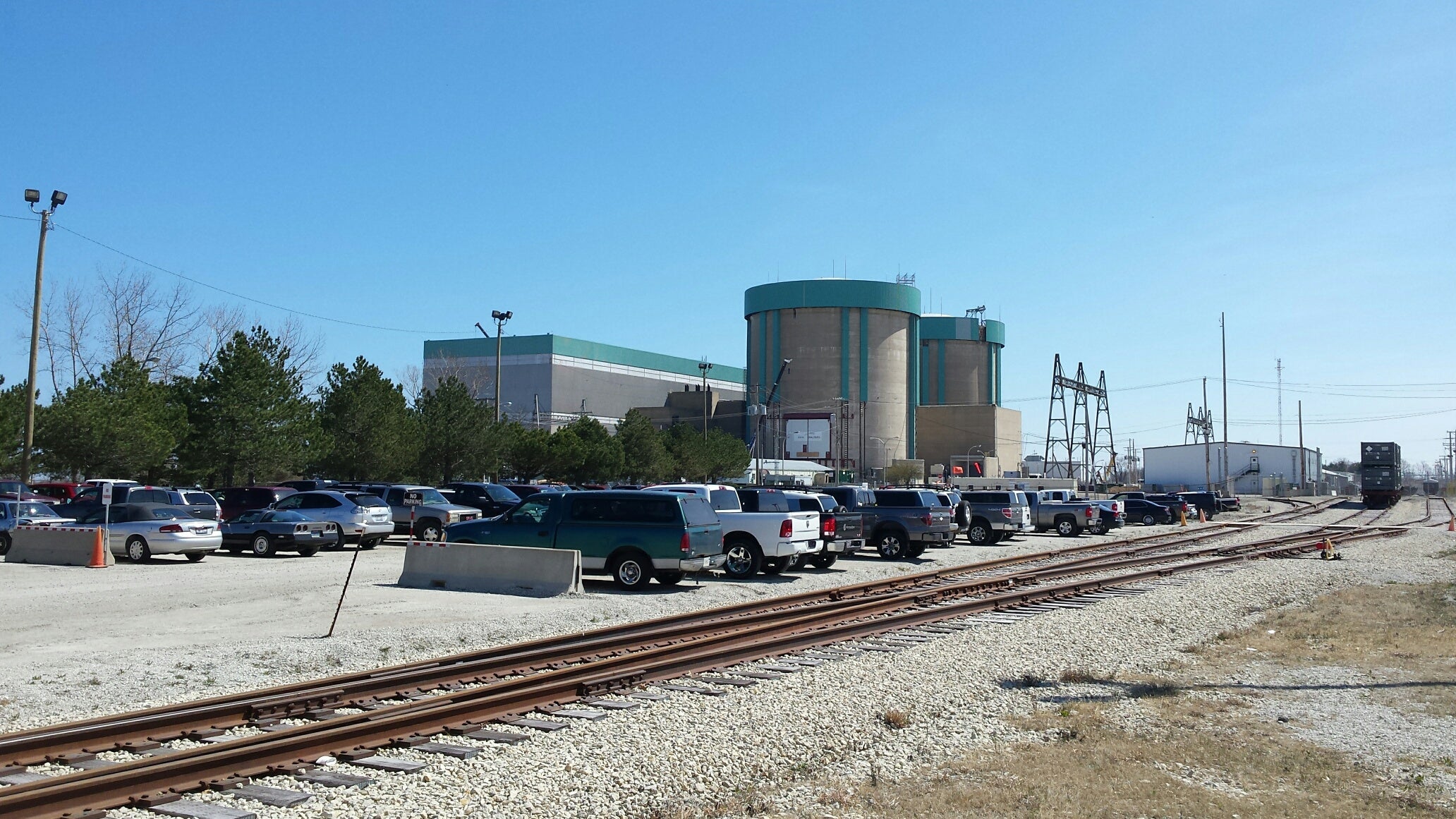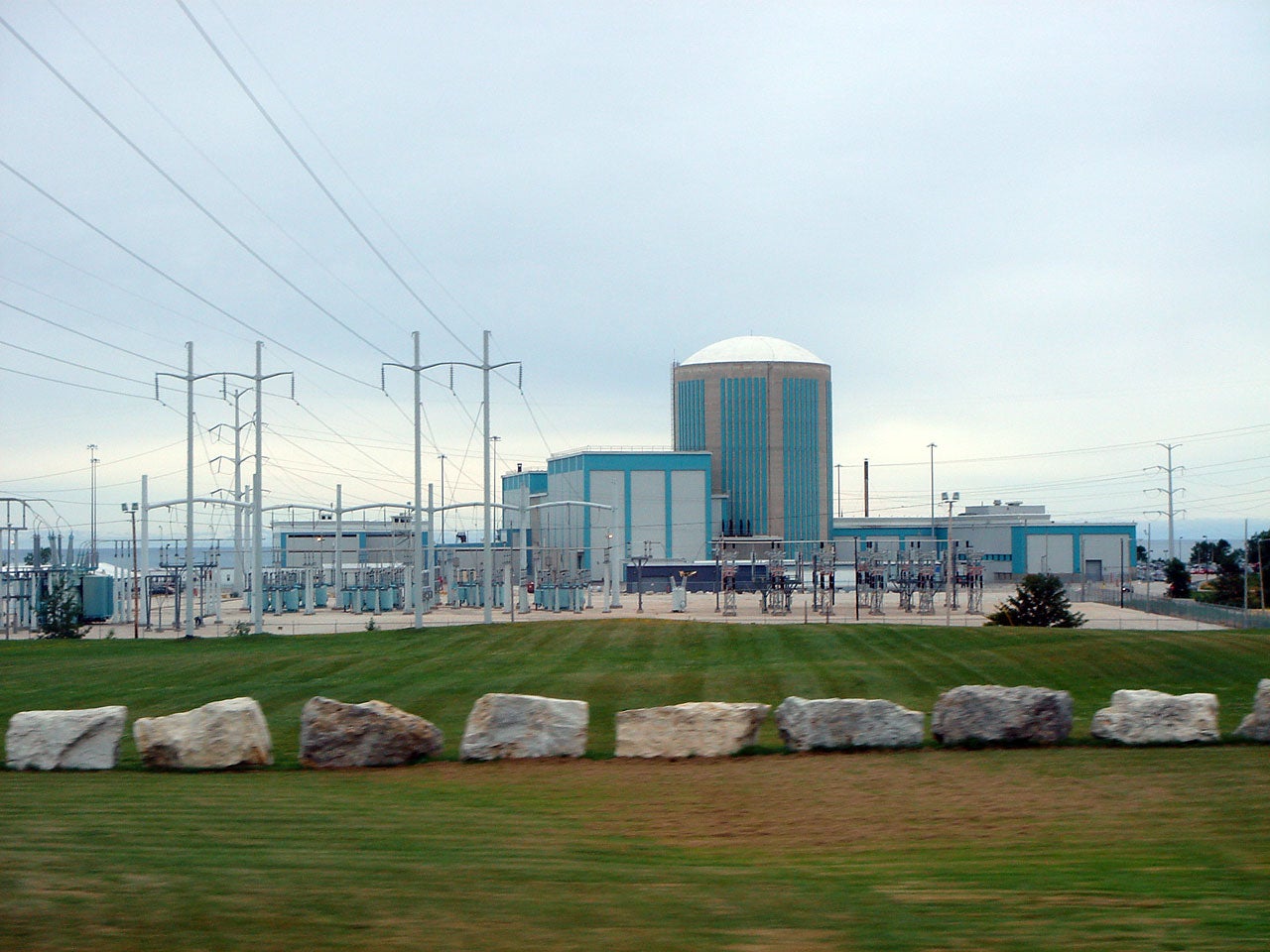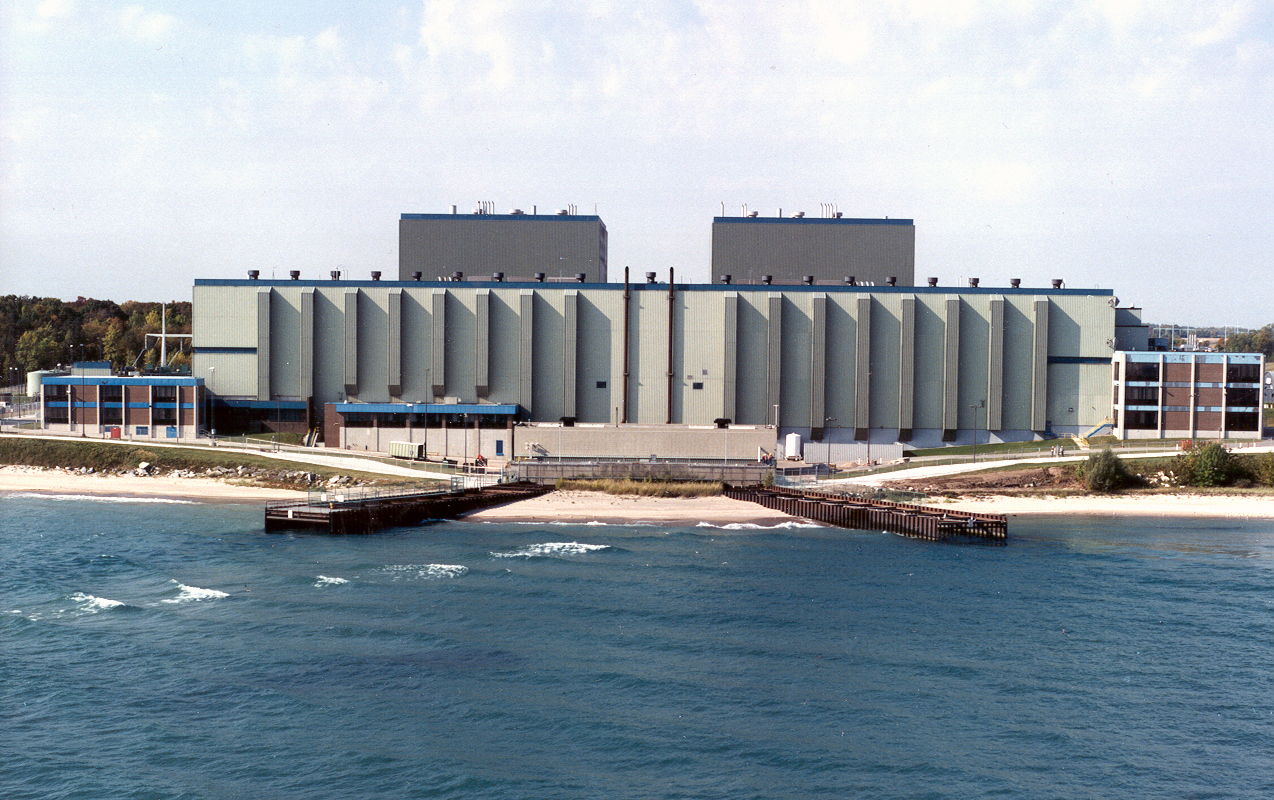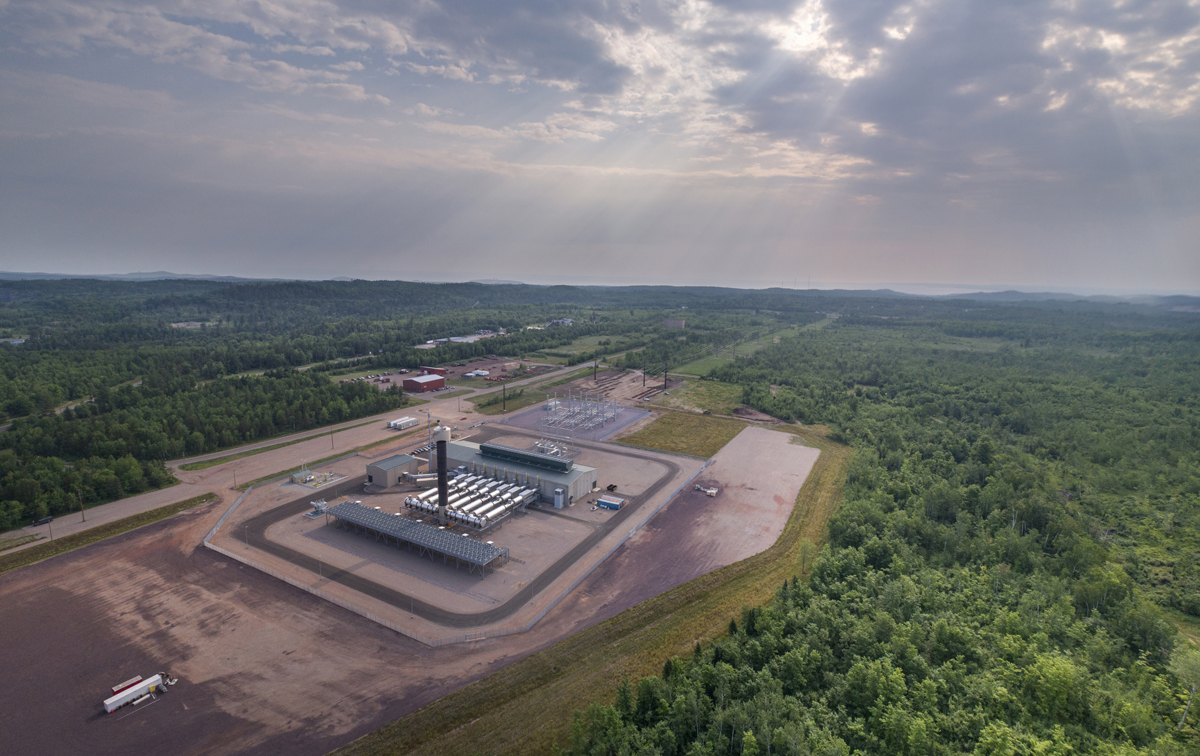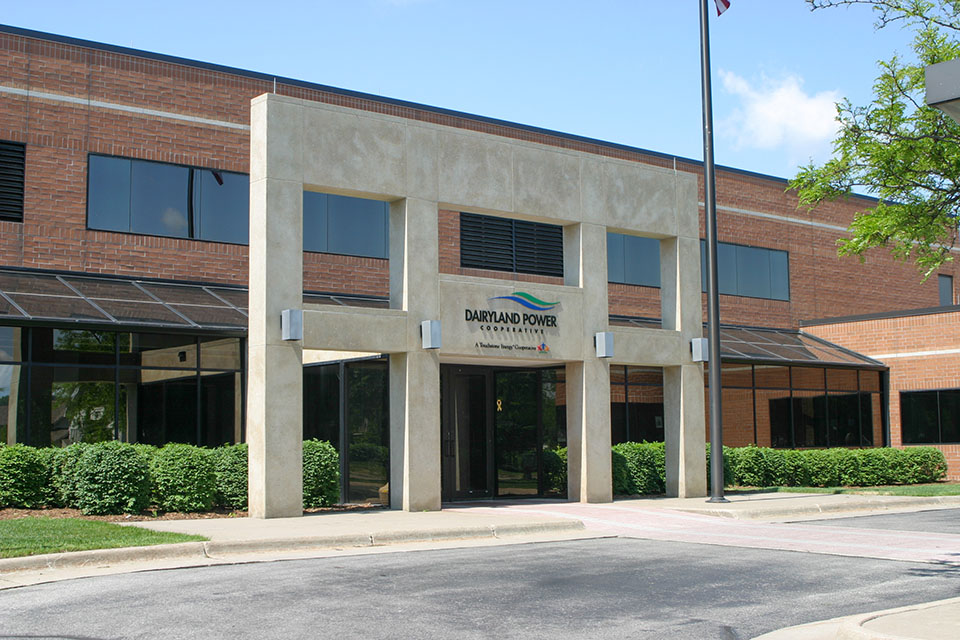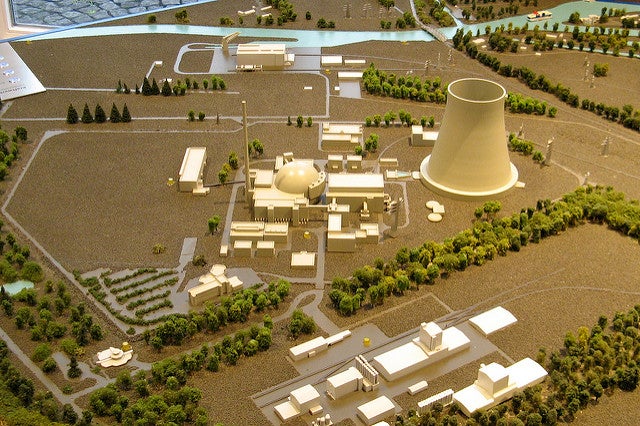Two years ago, the nuclear power plant at Kewaunee stopped producing electricity, kicking off a potentially six-decade closing process known as decommissioning. Some in the nuclear industry would like to speed up the work and point to what’s happening at Illinois’ former Zion Nuclear Power Station along Lake Michigan, just south of Kenosha. Meanwhile, some residents near the Wisconsin border still have safety and financial concerns about the Zion facility.
The two units of the Zion plant shut down 17 years ago, but the site is far from deserted. Guards are there to check your social security number a day ahead of any scheduled visit and look at your photo ID at the gate. Then a guided tour reveals a few hundred people are now taking the plant apart and preparing to transport pieces to waste facilities out of state, a process federal regulators call “rip and ship.”
But the most dangerous material — spent fuel from the plant with a high level of radioactivity — may stay at Zion a long time. Recently, it was moved in concrete and steel casks a few hundred yards to a concrete pad inside a fence topped with barbed wire.
News with a little more humanity
WPR’s “Wisconsin Today” newsletter keeps you connected to the state you love without feeling overwhelmed. No paywall. No agenda. No corporate filter.

Concrete casks to hold Zion’s spent fuel. Larry Darling (CC-BY)
Mark Walker is a vice-president with Energy Solutions, the company with the license and contract to decommission the Zion plant. During the tour, he showed off the independent spent fuel storage installation.
“There’s your ISFSI pad right there — 61 containers of spent fuel, four containers of greater than Class C waste, and they’re all housed there,” Walker said. “That pad is full and will remain there until the federal government will decide what it wants to do with spent fuel.”
That type of dry storage worries some nuclear power watchdogs who argue that if the former spent fuel water pool at Zion is taken away, it could be unsafe to fix any flaws with the storage casks. Mark Walker said Energy Solutions also has to be careful with less-contaminated plant waste that’s being hauled to places like Texas and Utah in reinforced and covered rail cars, a prospect that inevitably raises questions following a recent string of explosive oil train derailments and other accidents.
“We’re always taking every precaution we can in the transportation of this material,” Walker said. “We want to make sure we safely get it there and we’ll continue to do so.”
There’s also asbestos removal going on in some buildings. Put all the work together, and decommissioning Zion could cost close to one billion dollars by the time the job is expected to be finished a few years from now. Much of the money has already been set aside by ratepayers of Zion’s owners, the utility Exelon Corporation and its subsidiary Commonwealth Edison.

The plant’s now-inactive reactor facilities. Chuck Quirmbach/WPR
At a community meeting last week, the Nuclear Regulatory Commission and members of the public discussed how decommissioning is going as part of the plant’s license termination plan. The session stretched late as skeptics like Tom Rielly of the public interest group Vista 360 raised numerous questions about financing.
“Are we getting a fair shake? Are we in fact getting a fair deal?” Rielly asked. “Is it being done efficiently and effectively? And there is nobody in the public — the three million customers that Commonwealth Edison or Exelon had, that can answer the question.”
Rielly said this appears to be the first big nuclear plant decommissioning where a third party — Energy Solutions or its subsidiary, Zion Solutions — is doing the work, instead of a utility. The Nuclear Regulatory Commission’s Bruce Watson said his agency’s bottom line is no different.
“We still inspect them to the same safety standards, we expect the same safety performance, and since we may not have had as much experience with Zion Solutions, I think we were a little more critical of them in the process to a certain degree,” said Watson.
If Exelon is trying to speed up work at Zion to turn the site into something else, it isn’t saying. The firm says there are a number of options, including recreational, commercial and other uses.
It’s also too early to say if Dominion, the owner of the Kewaunee plant will also go the third-party route and hire a firm like Energy Solutions. Dominion says the rest of the Kewaunee’s spent fuel will be moved into dry storage by the end of next year but that dismantlement of the plant isn’t scheduled to start until 2069.
Wisconsin Public Radio, © Copyright 2025, Board of Regents of the University of Wisconsin System and Wisconsin Educational Communications Board.

